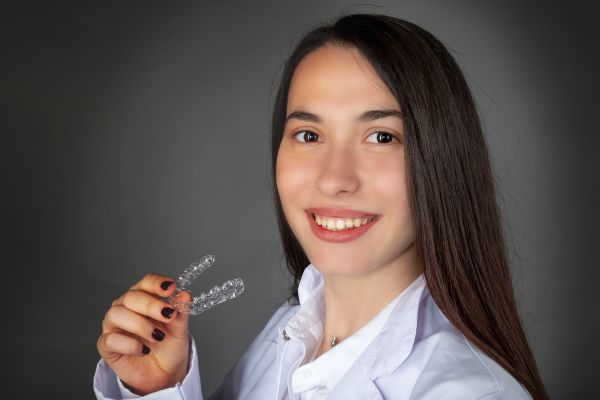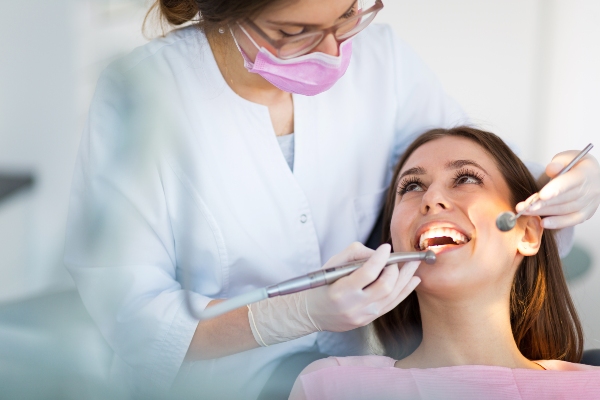3 Questions To Ask Your General Dentist About Invisalign

Many patients who avoided addressing teeth alignment issues in the past due to reservations about the treatment are now more comfortable with receiving care due to the invention of Invisalign®. This solution removes many of the disadvantages of braces, such as having unattractive metal on the teeth and limiting food choices. However, this option is new to the dental community and so raises many questions among patients. The first step to getting straighter, more attractive teeth is meeting with a dentist and getting all the essential information.
Discussing Invisalign® with a dentist
Many people are unfamiliar with clear aligners and how this newer alternative to braces works to straighten the teeth. However, understanding this treatment option is important for knowing whether this is a suitable solution. Here are three questions to bring up during the consultation appointment.
1. Who can benefit from clear aligners?
People with clear aligners should be adults or older teenagers who can stick to a routine. If wearing aligners consistently is a problem for any reason, traditional braces should be considered. Dental restorations can make wearing Invisalign® trickier, so this needs to be discussed with the dentist. Overly complex cases that are dealing with severely crooked teeth, large gaps, midlines movements, or extractions may be too complicated for clear aligners to address. However, most alignment issues can be fixed with this alternative.
2. How often should the aligners be worn?
To have teeth treated with Invisalign®, the patient must be mature and dedicated enough to wear the aligners consistently without taking them off for extended periods of time. When placing a set of aligners for the first time, the dental professional instructs the patient to wear the trays at least 22 hours a day. The additional two hours in a day are reserved for times when the patient takes off the trays to eat food, drink a non-water beverage, or clean the teeth. If patients neglect to wear the aligners at all other times, the teeth may not shift to the intended position and the treatment will be unsuccessful.
3. What is the cleaning process for the aligners?
While clear aligners can be removed, making it easier to keep the teeth well-maintained, patients do need to add an extra step to their teeth hygiene routine. After waking up and before bed, the tray needs to be removed from the teeth and cleaned using a special solution or toothbrush. Consider brushing the teeth and trays in between meals as well. Attachments require extra care to remove food if it gets stuck.
Conclusion
Dental professionals are ready to answer patient questions about Invisalign® and the other teeth alignment options that are available. Have a list of questions ready before attending the consultation, including the three here and others you may have. As the process continues, more questions are bound to come up. Establishing open communication and making an educated choice for clear aligners over other alternatives is a strong way to start the journey to a beautiful smile.
Request an appointment here: https://www.mytotaldentistry.com or call McCarthy Dentistry at (740) 546-5178 for an appointment in our Marietta office.
Check out what others are saying about our services on Yelp: Read our Yelp reviews.
Recent Posts
Dental implants provide a long-term solution for those missing teeth, improving oral health and function. However, patients should learn as much as possible before the procedure to ensure the most effective treatment outcome. Asking the right questions during a consultation can help you make informed decisions about your oral health. Here are five essential questions…
Dental implants offer more than just cosmetic benefits. They restore oral function, improving speech and chewing efficiency while preserving jawbone structure. These long-lasting solutions provide stability and durability, making them a preferred choice for patients who want to replace one or more missing teeth.Missing teeth can impact speech clarity. Gaps between the teeth may lead…
Dental implants provide a durable and natural-looking solution for missing teeth. This popular teeth replacement option can last many years with proper care, improving the function and appearance of your smile. Practices like following a good oral hygiene routine, adopting healthy lifestyle habits, and scheduling regular follow-ups can all help contribute to the overall longevity…
If you find yourself with TMJ, you need to head to a TMJ dentist immediately. TMJ, or temporomandibular joint dysfunction, is a serious condition of the jaw that can cause everything from pain and irritation to complete inability to move the jaw. This condition can grow more serious by the day, so if you are…


